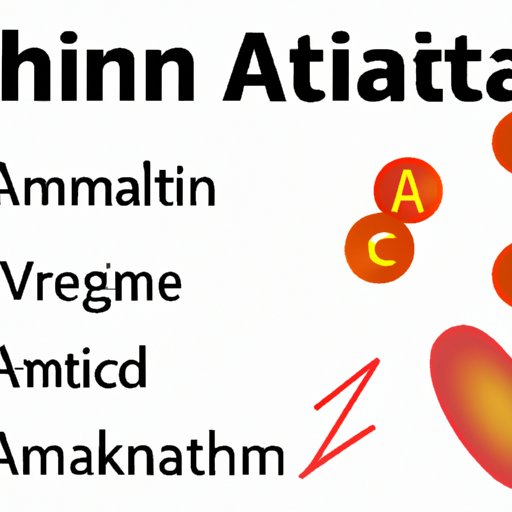
Introduction
Vitamin A is an essential nutrient that plays a critical role in maintaining good health. It is vital for maintaining good vision, healthy skin, and a strong immune system. In this article, we will explore the importance of vitamin A and its various health benefits. Our target audience is anyone who wants to learn more about this essential nutrient, its role in growth and development, and the long-term benefits of getting enough in your diet.
Health Benefits of Vitamin A
Vitamin A is essential for good vision, healthy skin, and a strong immune system. It plays a crucial role in maintaining the integrity of the cornea and the functioning of the retina. Vitamin A also helps the skin stay healthy by promoting cell growth and preventing dryness. Additionally, it supports a robust immune system, which helps fight infections and illnesses.
Dietary Sources and Deficiency Consequences
There are two forms of vitamin A: animal-based (retinol) and plant-based (carotenoids). Animal-based vitamin A is found in liver, eggs, and dairy products. Plant-based vitamin A is found in colorful fruits and vegetables such as spinach, sweet potatoes, and carrots. A vitamin A deficiency can result in a range of symptoms, including night blindness, dry skin, and weakened immune system. In severe cases, vitamin A deficiency can lead to blindness.
The Role of Vitamin A in Growth and Development
Getting enough vitamin A is critical during growth and development, particularly in children and pregnant women. This nutrient is necessary for the development of organs, bones, and teeth. In pregnant women, a vitamin A deficiency can lead to fetal growth retardation and an increased risk of death for both the mother and the child.
How Vitamin A Works in the Body
Vitamin A works by binding to specific proteins called retinoid receptors. These proteins are located in the nucleus of the cells and control gene expression. When there is too much or too little vitamin A present in the body, it can lead to unwanted gene expression which may result in severe health issues.
Long-Term Benefits of Getting Enough Vitamin A
Studies have shown that consuming enough vitamin A can lead to long-term health benefits. For example, it has been associated with a reduced risk of chronic diseases such as cancer and heart disease. These long-term benefits are due to vitamin A’s ability to support a healthy immune system, promote cell growth and differentiation, and fight oxidative stress.
Tips for Incorporating More Vitamin A in Your Diet
Incorporating more vitamin A in your diet is easy. Eating leafy greens, carrots, sweet potatoes, and liver is an excellent way to get more vitamin A in your diet. Ensure that your diet is rich in these foods to support good health.
Conclusion
Vitamin A is essential for maintaining good health. Consuming enough vitamin A supports good vision, healthy skin, and a robust immune system. It is necessary for growth and development, and studies have shown that it provides long-term benefits to overall health. Ensure that your diet is rich in vitamin A by incorporating leafy greens, carrots, sweet potatoes, and liver into your weekly meals. It is essential to make sure that you are getting enough vitamin A in your diet to support overall health.




